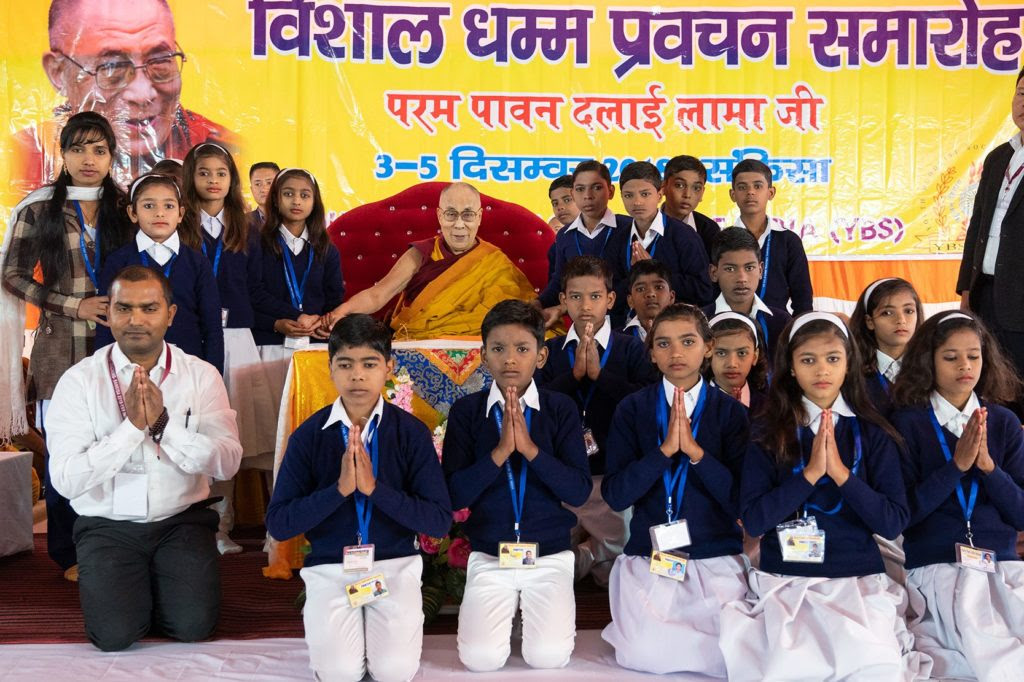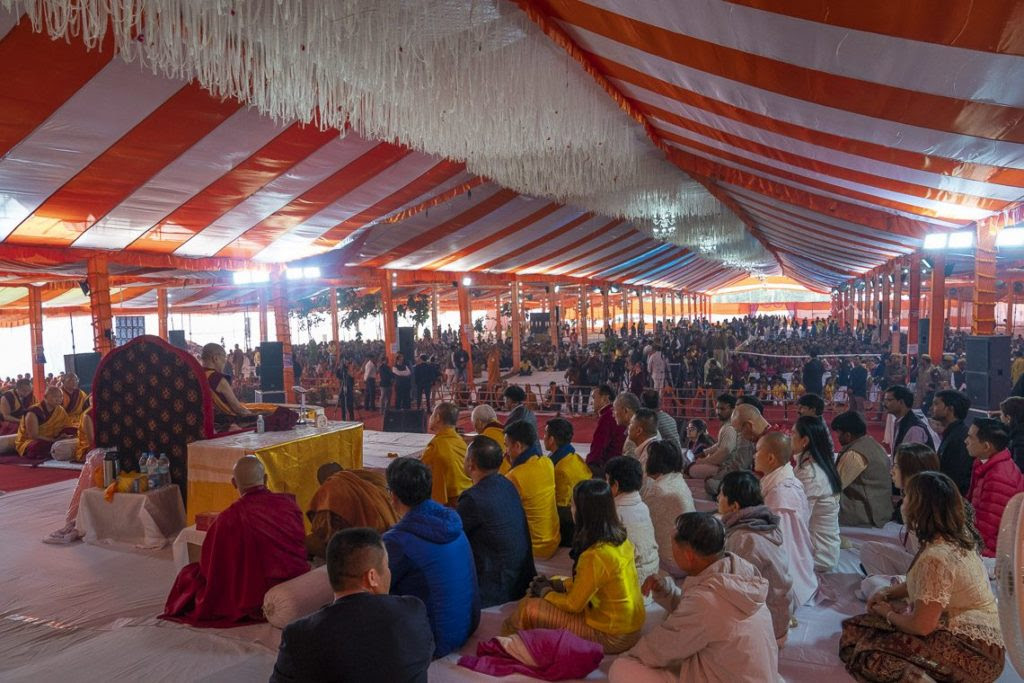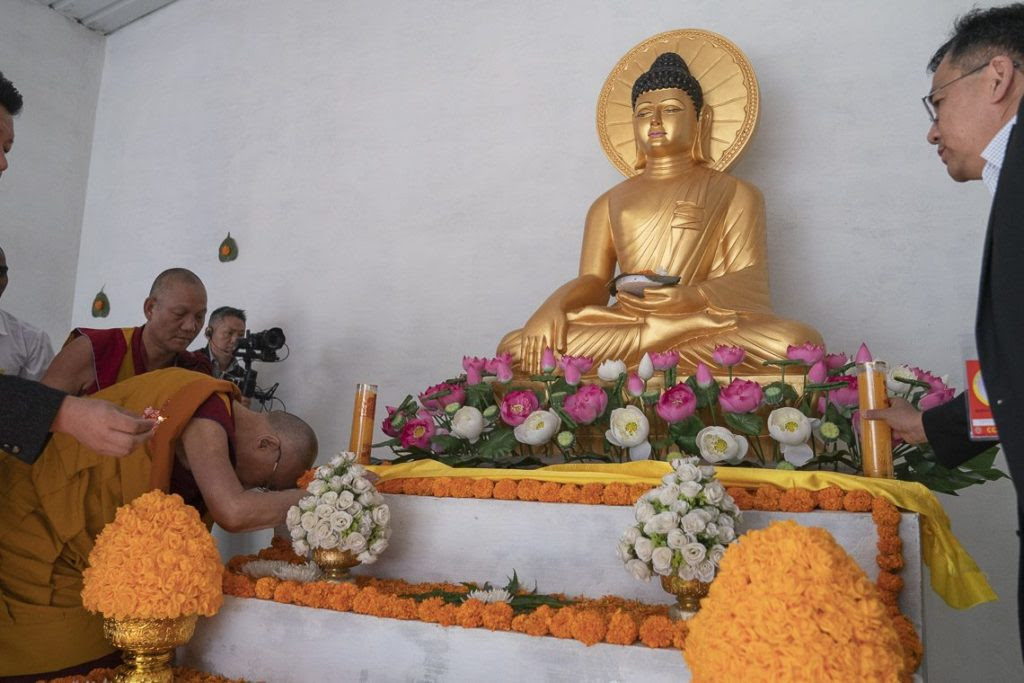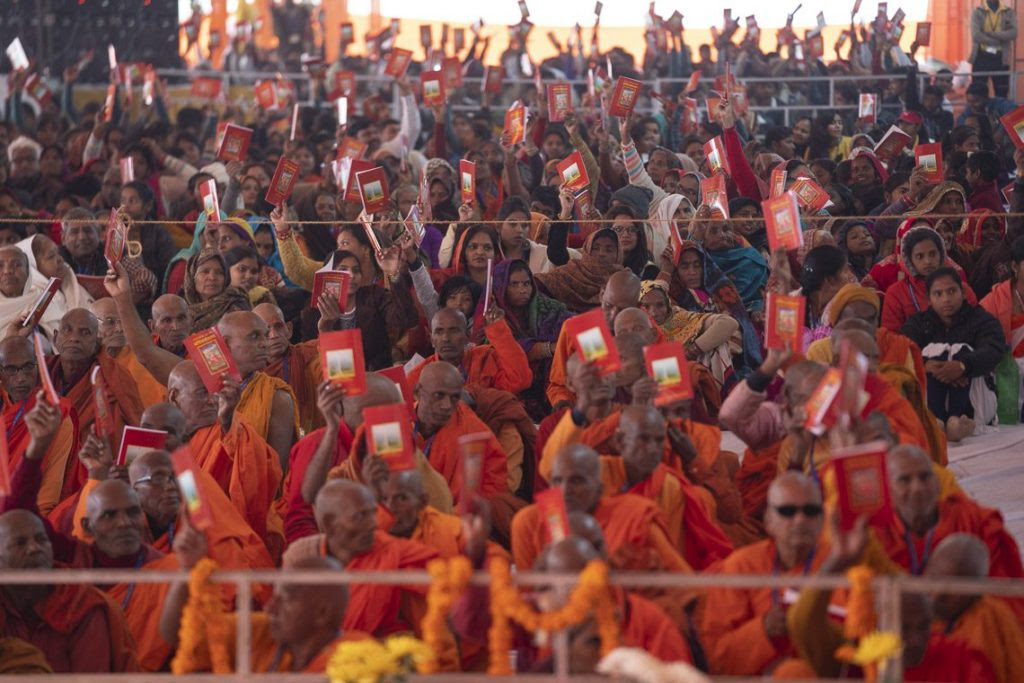
By Shyamal Sinha

His Holiness the Dalai Lama said this Monday that humans are innately compassionate and through the teachings of the ancient Indian wisdom, we can tackle and eliminate them.
“In India, for centuries, there’s been a practice of ahimsa or nonviolence and secular principle. Besides, celebrating the diversity of religion and culture, India’s secular principle accords respect to non-believers. This is key to building peace and understanding,” His Holiness said, inaugurating his three-day teachings for Indian devotes at Sankisa, Uttar Pradesh.
The teachings are being organised by the Youth Buddhist Society of India. YBS India is a volunteer, governmental, non-sectarian, non-political people’s development movement based on Engaged Buddhism established in the year 1986 in Sankisa by Suresh Chandra Bauddha in Uttar Pradesh, India.
More than 15,000 people, mainly Indian devotees, had gathered at the YBS ground to listen to His Holiness’ dharma discourse. Kalon Trisur Professor Samdhong Rinpoche and representatives from Tibetan and non-Tibetan Buddhist monastic communities were present too.
His Holiness implored that Indian understanding of secular is truly befitting in today’s world. “If you respect all communities of religion and those without, you will not indulge in violence or harming others. It’s very important for us to take an earnest lesson from these thousand years old secular principle.”
He argued not every human being subscribes to religion and even within religion, there are philosophical differences and views. “Without touching religion as such, we can practice love and compassion in a secular way.”
Tagging himself as a practising student of Nalanda tradition, His Holiness said he sees the relevance of the ancient wisdom and endeavours to revive it in modern India
“The world today is facing a serious crisis of emotions. Even In the most highly developed countries, despite the material development, progress and prosperity, we see that there’s a mental and psychological disturbance in many people. Without the understanding of human emotions and training, we easily resort to weapon and force.”
His Holiness said he has faith that the younger generation of India can bring the change through reviving the teachings of ancient Indian wisdom.

“The violence of the 20th century have claimed more than 200 million people killed in the violence. Now, we should build a century of peace, not through prayer, but through our own practice.”
By practice, His Holiness refers to the practice of ancient Indian traditions that deal with concentration and insight, shamatha and vipassana, that have accumulated a profound understanding of the workings of the mind.
“Irrespective of one’s religious belief, his ancient knowledge remains relevant today because it can equip us to deal with our destructive emotions and bring about a transformation of the mind.”
His Holiness also alluded to India’s centuries-old religious harmony, calling it previous and admirable.
“India should serve as a role model for the rest of the world. With more than a billion population and for many centuries, India has practised and preserved its religious harmony. Hence, it shows that religious harmony is possible. Therefore, I urge my Indian friends to show to rest of the world that is possible.
Delving into different religious branches and its purpose, he said there are different philosophical views within a religion and that is to enable human beings in further developing our practice of love and compassion.
“In the Nalanda tradition of Buddhism, there are four schools of thoughts: Sarvastivada Vaibhas
“Among these four, there are lots of arguments and criticisms against one another but these criticism are not to create disharmony but to do more investigation into the teaching of Buddha for our spiritual and mental development.”
Following the introductory teachings, His Holiness began the discourse on Shantideva’s ‘Guide to the Bodhisattva’s Way of Life’. The teachings will conclude on 5 December.













